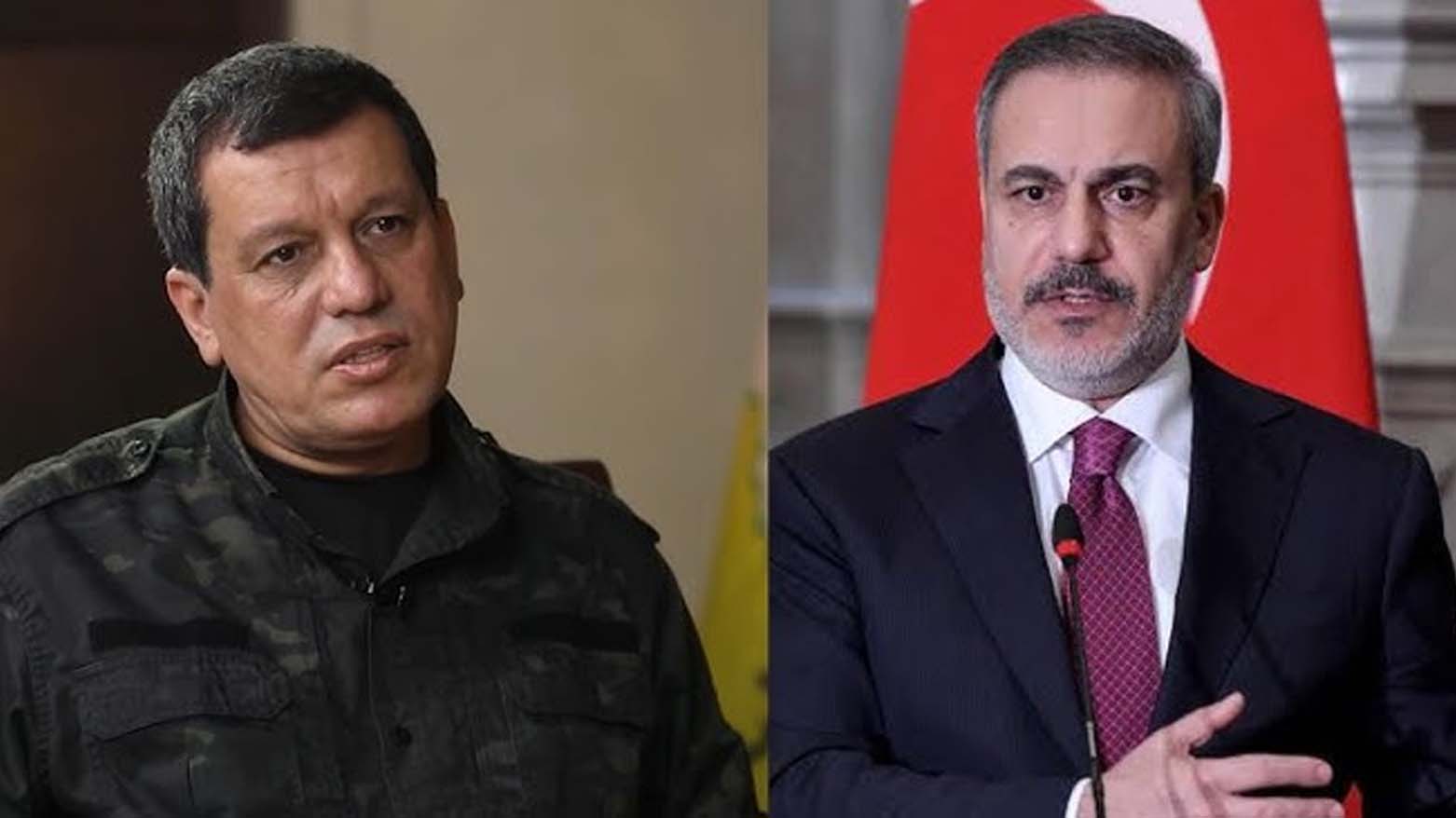A Path to Peace: Ambassador Barrack on the Kurdish Question, Lebanon, and Regional Stability
US Envoy Barrack outlines path to peace: dialogue with Kurds and Türkiye, integrating Hezbollah into Lebanese politics, and economic alternatives over disarmament. He emphasizes trust-building and regional cooperation to avoid further conflict.

ERBIL (Kurdistan24) - In a candid and wide-ranging interview with Mario Nawfal, US Special Envoy for Syria Ambassador Tom Barrack outlined Washington’s vision for resolving deep-rooted tensions across the Middle East, beginning with the Kurdish question in Syria, the role of Türkiye, and the future of Hezbollah and Lebanon. Barrack emphasized dialogue, economic alternatives, and trust-building over military confrontation, warning that another cycle of conflict would devastate already fractured societies.
Barrack focused on the Kurds and Türkiye, acknowledging the immense human cost of conflict. “Forty thousand lives have been lost in Türkiye’s road to its own new independence,” he said, underscoring the scale of sacrifice.
He highlighted ongoing dialogue between General Mazloum Abdi and the Syrian Democratic Forces (SDF) on one side, and senior Turkish figures such as Foreign Minister Hakan Fidan and Ibrahim Khaled on the other. According to Barrack, this process, supported by President Recep Tayyip Erdogan, is essential to building trust across a historically volatile border.
“Türkiye has been a fantastic ally, often misunderstood, but always a crucial NATO partner,” Barrack noted. He argued that Ankara’s engagement with Kurdish forces in Syria, despite deep disputes, demonstrates that dialogue is possible. “We need dialogue. Without it, past decades of bloodshed will simply be repeated.”
Barrack also said that “Turkey have PKK, which again is a stated foreign terrorist organization within Turkey. The US also has claimed the PKK as a foreign terrorist organization. There is another organization which is no longer affiliated with PKK, SDF and YPG, which have been our allies in the de-ISIS campaign.
Their genealogy was out of PKK. (19:07) So you have the Kurds in the Northeast (Western Kurdistan), that's them, that's SDF.” Showing that the Kurds in Syria are not like what turkey is portraying.
Turning to Syria, Barrack said the country remains paralyzed by sectarian divisions and political fragmentation. He urged Syrian leaders to abandon the “regrets of the past” and instead embrace new frameworks that prioritize survival and coexistence.
“For 50 years we have been trapped in confessional politics—Maronites, Sunnis, Shias, Druze, and others—yet this is a path toward extinction,” he warned. Barrack stressed that Syria’s future depends on reform and inclusion, pointing to younger generations who demonstrate that coexistence is possible when freed from political manipulation. “Your generation is not concerned with sectarian labels. You want the best person for the job. That must be Syria’s way forward.”
On Hezbollah, Barrack said that military disarmament is neither realistic nor sustainable. Instead, he argued that creating credible political and economic alternatives for Lebanon’s Shia community is the only way forward. “The issue is not disarming Hezbollah. The issue is giving Shias a better path than weapons or dependency on Iran,” he explained.
He outlined the disparity in pay between Hezbollah fighters, who earn about $700 a month, and Lebanese Armed Forces (LAF) soldiers, who receive around $275–300. This economic gap, combined with Tehran’s consistent financial support, entrenches Hezbollah’s appeal. Barrack suggested that donor states must fill this vacuum with reliable support to southern Lebanon, while integrating Hezbollah fighters into the LAF and allowing the group to evolve into a political faction.
“Hezbollah is becoming less of an Iranian proxy and more of a Lebanese party,” Barrack said, stressing that reformist Lebanese leaders, including Speaker Nabih Berri, must be engaged rather than sidelined. “He is the voice of the Shia community. He must help us chart a new path.”
Barrack praised Lebanon’s emerging reformist ministers and described the LAF as the most trusted national institution. “The LAF is the guarantor of stability. Everyone trusts them—the Shias, the Sunnis, even Syria and Israel respect their neutrality,” he noted.
He called for significant international investment in the LAF, including better salaries, training, and modern equipment, to make it the foundation of Lebanon’s security. “The Shias already rely on the LAF. If empowered properly, it can provide the security guarantee that Lebanon desperately needs.”
Addressing Lebanese fears of Israeli ambitions, Barrack insisted that the current process is not about forcing Hezbollah to surrender its weapons but about ensuring they are never used. “The issue is the utilization of weapons, not their existence,” he said.
He recounted meetings with Israeli Prime Minister Benjamin Netanyahu, urging Israel to show tolerance and allow space for economic development in southern Lebanon. “Sovereignty is not about lines drawn with thick or thin pens—it is about the dignity and survival of the people,” Barrack explained, dismissing minor territorial disputes as distractions from the deeper need for peace and trust.
Barrack concluded by calling for a broader vision of the Levant that combines the strengths of different peoples: Kurdish resilience, Syria’s industrious workers, Türkiye’s strategic weight, Iraq’s oil wealth, Lebanon’s diaspora talent, and Gulf investment. He pointed to the Abraham Accords as proof that breakthroughs once dismissed as impossible can indeed succeed.
“The Levant can be resurrected for the stature and respect it deserves,” he said. “But it requires engineering a path of respect for Shias, empowerment for Kurds, reform in Syria, responsibility from Türkiye, and dialogue with Lebanon’s leaders. The alternative is another descent into civil war, and nobody wants to see thousands of Lebanese lives sacrificed again.”
Updated on Aug. 30, 2025, at 1:31 PM.
